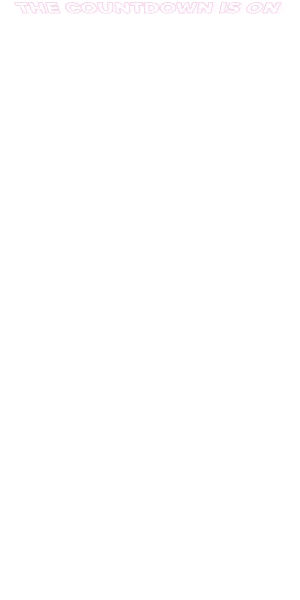HR, it’s time to think like anthropologists
That’s how you create a workplace culture that benefits every generation, says Martha Bird, ADP’s chief business anthropologist.
Expert Insight
Gen Z is going to transform the workplaces of the future.
How should HR prepare?
HR tech giant ADP's chief business anthropologist Martha Bird shares her advice exclusively with UNLEASH.
Generation Z, those born between 1997 and 2012, currently make up 30% of the world’s population – and by 2030 they will make up 30% of the global workforce.
They are rapidly catching up with Millennials and Gen X who make up 39% and 36% of the workforce respectively. Boomers make up 19% currently, but that is rapidly declining as more and more of them reach retirement.
All of this means that very quickly Gen Z’s fresh perspectives and attitudes towards work – some of which “20 years ago, were the topics of social activists” – will move form “the periphery into the center”, HR tech giant ADP’s chief business anthropologist Martha Bird tells UNLEASH in an exclusive interview.
As a result, HR really needs to not overlook the viewpoints of this younger generation.
To build successful multi-generational teams and company, it is crucial to really take note of (and really understand) generational differences – “frankly, someone who is a boomer is culturally different form somebody’s who’s in Gen Z”, they use different language, grew up in very different contexts and so see the world differently.
“I believe understanding people, listening attentively, being respectful, being curious and open minded can only be a good thing. HR leaders would really benefit from thinking more like anthropologists,” adds Bird.
Gen Z are driven by values
This begs the question, what makes Gen Z so different to their older colleagues? Of course, it’s important not to stereotype, but as a cohort, are they really that different from Millennials?
The answer is yes. First of all, Gen Z are the most diverse generation in history, and this means they expect to work somewhere where diversity, equity, inclusion and belonging are top of mind. This is “table stakes” for them, it is not a nice to have.
Bird notes: “Their perspectives are broader minded – there is a greater sensitivity to inclusion and belonging, [as well as] social justice and environmental issues”.

Martha Bird, chief business anthropologist, ADP.
All of this makes sense because Gen Z’s early lives have been dominated by the “perfect storm” of a “health crisis, social crisis and environmental crisis”.
This trifecta of crises has created an extremely anxious generation – they are overexposed “to topics that even [Millennials] weren’t exposed to quite the same degree” at the same age.
It’s time for portfolio careers
Gen Z also has financial anxiety – remember, this generation were “young kids during the great recession” of 2007/8. “they saw their parents, or friends or family losing their jobs, losing their homes, not being able to pay their debts”.
When Gen Z look around, they see that “this person worked for X company for this long, and they still got laid off” – this impacts their perspectives on loyalty to their employer.
There’s “this definite lack of enthusiasm for the loyalty of the past that people used to give to companies”. But loyalty shouldn’t be conflated with commitment – Gen Z is still committed and motivated at work, but they can see that companies will always be self-interested, so that traditional loyalty model was one sided.
Not only do Gen Z not want to be beholden to one employer, they no longer see their “sense of self [or] status as a human being” as being “tied to what I do for work”; there’s more to life than “the work you do or the money that you make”.
Bird doesn’t believe Gen Z will grow out of this attitude – “I don’t think it is going to be like, all of a sudden, we’re back to ‘I believe in the American dream. Those days are gone”.
Ultimately Gen Z wan to be in charge of their own destiny. This explains that although historically, side hustles or gig work have been seen as insecure, unpredictable and precarious, for Gen Z aka “those who have grown up multitasking with digital tools, gig work or side hustling is [seen] actually as a valid form of financial security”.
This is confirmed by a survey of 10,000 global workers by Kantar, which found that 40% of Gen Z workers combine at least two roles – the figure drops to 36% for Millennials, 30% for Gen X and 21% of boomers.
Bird’s recent research talked about this notion of portfolio careers – this is shift away from a traditional career path, and towards diversified ways of earning money (and thinking about a professional identity).
With the help of YouTube and other online tools, Gen Z can teach themselves a lot – this makes them “self-reliant, really proactive [and] entrepreneurial”.
How must HR respond?
For Bird, HR must prioritize three things if they want to get ahead of the curve, and get prepared for the influx of Gen Z.
“You’ve got to pay people fairly – that’s the baseline”.
Beyond that, learning and development opportunities are crucial – these must be horizontal opportunities, as well as vertical.
For Gen Z, the corporate ladder is mythological – “it has no relevance” to their working lives. Instead, they prefer the idea of a career web.
This links back to the idea of a portfolio career – employees want choice, and to be in charge of their own destiny, and what their future career looks like (whether that is side hustles or lateral moves that help them gain new skills).
Of course, flexibility is also key – Gen Z largely joined the workforce during the pandemic and remote work, and that has impacted their attitudes towards working location – “that’s not to say that Gen Z don’t want face-to-face, because they do”.
Finally, HR needs to understand that “technology is not a perk, it is table stakes” for Gen Z.
Technology is a normal part of their day-to-day lives, so they “expect” to have access to the right tools at work.
All of this is a real challenge for employers, and particularly HR teams. “It puts pressure on the system to make changes”, but these adjustments “will be better for business and the bottom line”.
Doing better around diversity and environmentalism is great for businesses, career webs could help solve some of these skills shortages that global workforce is facing, and technology can really drive efficiency at work if it is used properly.
A few companies are doing a great job here, and reaping the rewards – Patagonia, Morgan Stanley and Spotify are great examples. HR, look to their example if you are unsure where to start.
Sign up to the UNLEASH Newsletter
Get the Editor’s picks of the week delivered straight to your inbox!

Chief Reporter
Allie is an award-winning business journalist and can be reached at alexandra@unleash.ai.
